The last king of Nepal leaves the palace on June 11 to pave way for a secular democratic republic regime at Kathmandu. Meanwhile, the greediness of power among political parties come to the light. After days of debate and discussions among the political parties including the rebellious communists, there remains confusion about the formation of a stable government in the South Asian country.
As Nepal, a tiny country sandwiched by two giant neighbours India and Tibet (China) has witnessed the departure of its last king Gyanendra from the Narayanhiti Royal Palace in Kathmandu, the 240 years old dynasty came to an end. The parliament on May 28 resolved and declared the Himalayan nation as a federal democratic republic. The main palace is now turned into a museum.
The dethroned king Gyanendra, 60, now lives temporarily at Nagarjuna palace, the summer residence of the former monarch, until a private house is arranged for him. The government has provided security arrangement for the ex-king who will now live as a common man.
Gyanendra gained the throne of the Himalayan kingdom after a bloody massacre in the palace during June 2001, where the then king Birendra Vikram Shah with some of his close relatives was killed by the Crown Prince Dipendra. Later Dipendra shot himself. King Birendra's brother Gyanendra then took control of the dynasty, which was shaped by the king Prithivi Narayan Shah in 1768.
But Gyanendra was never accepted as an admired king by the most Nepalese, as many of them suspected a conspiracy hatched by him to kill the most popular king Birendra. Many of his decisions, one when he dismissed the government to take absolute control of power in February 2005, made Gyanendra more vulnerable. Otherwise, the king of Nepal, earlier a Hindu Kingdom, was believed to be an incarnation of God (Bishnu) in the form of a human being.
After a decade of armed movement by the Nepali communist (Maoist) rebels for ending the monarchy, the country of 26 million people went for a general election in April 2008 and a Constituent Assembly was formed. It was expected that a democratic government will be formed in the country with the support of wining political party members, which included the rebels of Communist Party of Nepal (Maoist) too.
In the 601-member Nepal constituent assembly polls, the Communist Party of Nepal (Maoist) won in 220 constituencies. The other left party named Communist Party of Nepal-United-Marxist-Leninist (CPN-UML) succeeded in 103 constitutions. The major political party Nepali Congress won 110 seats.
Initially the Communist Party of Nepal (Maoist), which led the bloody revolution that killed more than 10,000 people, demanded both the posts of President and Prime Minister in the coalition government. Surfaced as a new power in Nepali politics, the Maoist chairman Pushpa Kamal Dahal, more popularly known as Prachanda, made it clear that they must be allowed to form the government with both the top posts in their net. Prachanda, during an interview on May 30, stated, "Our Party deserves both the posts of President and Prime Minister. Losers (read Nepali Congress and CPN-UML) in the Constituent Assembly polls cannot get these posts."
But the other political parties were not in the mood to buy the theory. The Nepali Congress leaders argued, being the largest political party, the CPN-M has the legitimate claim to form the next government, but they should share one post to other coalition partners. Facing the heat, the Maoist leaders retreated and spared the post of President. They now want a non-political personality as the first President of Nepal.
The Maoists made choices for the ceremonial post. They picked up names like Mrs. Sahana Pradhan, Ram Raja Prasad Singh, Nara Bahadur Karmacharya, Padma Ratna Tuladhar and Devendra Raj Pandey from the civil society groups. They however did not forget to mention that Prachanda must be elevated as the first Prime Minister of Nepal, at any cost, with the executive power.
Lately, putting Nepal into a fresh political crisis, the Communist Party of Nepal (Maoist) ministers in the ruling interim multi-party government resigned on June 12. It was understood as a pressure tactic to convince Koirala to quit and allow the Maoists to form the government according to their wishes. All the CPN-Maoist misters submitted their resignation letters to their party chief Prachanda, who was initially supposed to handover those to the interim government head Koirala. But later he has decided 'not to submit' the letters for the time being.
Talking to this writer, an Indian journalist based in Kathmandu, argues that 'being the largest political party, they (Maoist) have right to demand anything'. "The Nepali Congress and the Communist party of Nepal (UML) are nowhere close to the Maoists (in respect of number of seats won in the April 10 polls). They are far behind the Maoists," stated Anirban Roy, the representative of The Hindustan Times in Nepal. He also added that Koirala should have resigned and helped Prachanda to form the government. "After all, Koirala becomes Prime Minster for five times, and should not cling on to the hot seat even after losing the election," asserted Mr Roy.
Meanwhile, there was news that the Prime Minister GP Koirala was proposed as the first president of Nepal by the Nepali Congress. Prachanda however denied to accept Mr Koirala as the President. Though he is a grand national figure, Prachanda declared, they could not make choice for Mr Koirala because of his age and fragile health.
"Besides, he has been in power for long and if he is given the post (President) there is a possibility of two power centres in the government," asserted the Maoist leader.
The CPN-UML has meanwhile proposed that 'a non-member (of Constituent Assembly) could become the President'. However the first president should be elected and the person should be able to acknowledge the essence behind national unity, freedom and sovereignty, argued CPN-UML General Secretary Jhalanath Khanal.
Meanwhile, the political parties started hammering Prachanda because of his continued guerrilla background. They insisted hat Prachanda must quit the post of chairman of Maoist People's Liberation Army before joining the government. "There cannot be two parallel armies in a state and Maoist chief Prachanda, cannot be the chief of two armies," one of the Nepali Congress worker declared.
"It was perhaps easier for Prachanda to dethrone the king, but running a government will be more challenging task for the man, who emerged as a new epicentre of power in Nepal," commented a Kathmandu based political analyst. The analyst, who wanted anonymity, also added, "Making Nepal a country of prosperity, where one-third of the populace lives in acute poverty without access to education and health care, will be his immediate challenge."
Observing the present political crisis on way to form the government, it is understood that the political leadership including Prachanda have forgotten the real issues. The long time exploited people of Nepal supported the Maoists to depose the king, but in return they do not deserve a dictator (read in the form of Prachanda), he added.
- 8817 reads



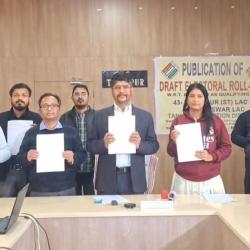
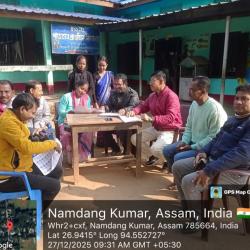
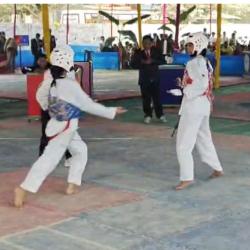
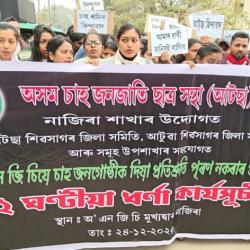
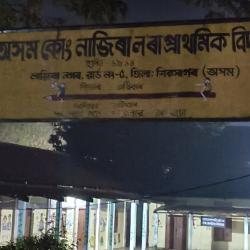
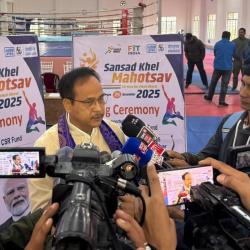

Add new comment